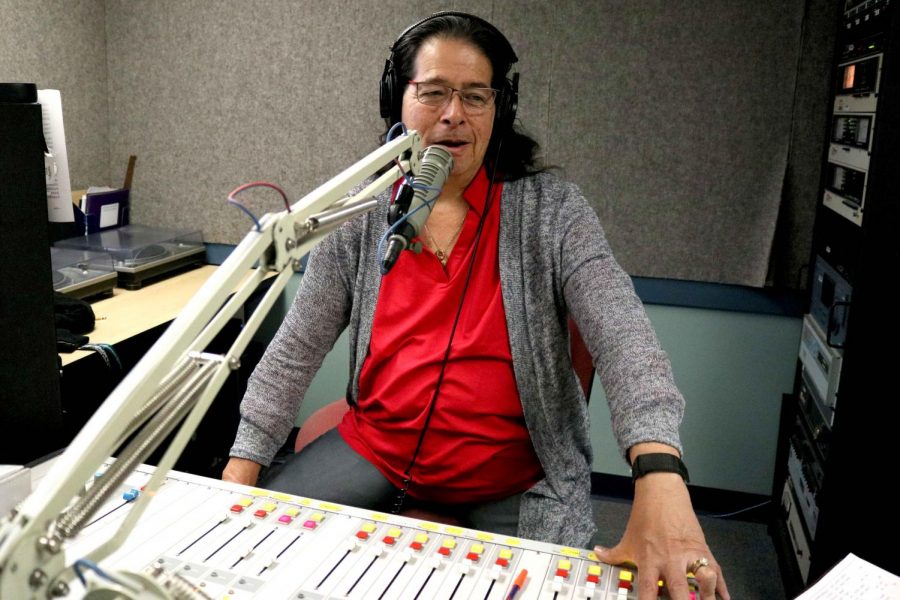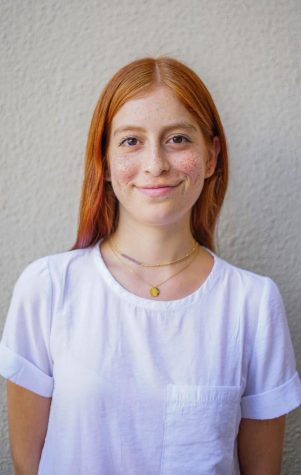Dee Woo, one of UTEP’s longest standing faculty members in the Department of Communication has publicly come out as transgender. Dee, whose given name is Dennis, was born a male in 1955.
She graduated from UTEP in 1976 with a degree in Mass Communication and proceeded to work in the broadcasting business for more than 30 years.
Woo is the operations manager at KTEP, the university’s radio station that broadcasts National Public Radio, music and locally originated programming, and has become an essential component to the inner workings of the station.
Woo came out to her friends, family and colleagues on a Facebook post on Oct. 17 and said that, while many congratulated her, many people unfriended her.
“…at the end of the day, for those who still think in binary terms that it’s okay to refer me as Sir, then you know that you insult me, therefore you disrespect me, for I do not have to tell you that I am trans. Get over it, I have been here, I am who I am and you are…,” Woo said on an Oct. 17 Facebook post.
It was in her last year of high school that she decided to come out for the first time. One of her openly gay classmates empowered Woo, but when she tried to come out, her classmates thought that she was joking and did not take her seriously.
She understood that she did not fit into the binary lifestyle. Over time, Woo’s gender dysphoria, which she has grappled with throughout her life, progressively built frustration, suppressed feelings and anger up within her which, eventually, turned into depression.
Gender dysphoria is the contrasting disagreement between a person’s assigned gender, decided by genitalia at birth, and the gender that the same person identifies with, according to the DSM-5 by the American Psychiatric Association.
In 1990, at the age of 35, her therapist told her that her depression was gender-related and essentially reaffirmed the fact that she is transgender. It was the first time that she had heard someone say it to her.
“The more we got into it the more my therapist said, ‘well this isn’t traditional depression, yours is gender-related, you’re transgender,’” Woo said. “I thought okay, that explains everything.”
In 2005, Woo lost her mom. Woo explains that, while she never told her parents about her being transgender, her father seemed to have an inkling and was more accepting of Woo’s personality, while her mother questioned her feminine nature. This loss persuaded her to begin accepting herself as transgender in order to eventually come out.
For the past 13 years since her mother’s death, Woo has been working on herself in order to become the person that she is today. Nevertheless, her journey is far from over.
“Having to go through most of my adult life living a lie, basically, was never comfortable,” Woo said.
Woo has played a role for the greater portion of her life, finding it difficult and frightening to come out as transgender. “I understand why actors get so burned out after a while,” Woo said.
It wasn’t until Woo gave a keynote speech that she realized she was not being truthful with herself. “Be true to thine own self,” is what Woo told the audience.
Woo’s words hit her with the realization that she had to follow the advice that she was giving to the graduating students she was speaking to. From that moment she began working on herself and her transition.
“The other day is when I just decided that I’m just going to be me. If they have a problem with it, screw it,” Woo said.
One of the places in which she has begun to completely embrace herself is in the Communication Department, the building that houses KTEP. She says that she understands that it is hard for the people who work in the department because they are used to seeing her as part of the binary community.
“I see Dee as to having a lot of courage,” said Dr. Guillermina Gina Núñez Mchiri, the Director of Women and Gender Studies. “I think it is important to be visible…It takes a lot of courage to say ‘I’m going to own the body I think I belong in and live that life that I need to live. Because the way I’ve been living is not living.”
Dr. Núñez explains that it is a privilege to fit into the binary categories that society has set. Therefore, it is important to reassure those who do not and make sure that they know that they are not alone.
In order to become the woman that she knows she is, Woo will have to undergo various expensive operations one day. She considers the physical reconstruction of her body as something necessary in order to fully transition into a woman.
At the age of 63, Woo is racing against time.
The rest of the transition involves taking steps toward reaching a mindset that is actively trying to combat her gender dysphoria day to day. Woo has to remind herself to be her true self and to learn to accept the fact that not everybody will accept her for who she is.
After a long life of confusion, repression and anger, Woo is moving on. She no longer hides or abides by the binary way of life that she was socialized into and only asks for the respect of others.
“All you need to do is to be true to yourself. Be honest with yourself about yourself and then everything else will fall into place,” Woo said. “After a while, you get fed up being underground, you want to be yourself and, at the tender age of 63, I just had to be me.”
Valeria Olivares may be reached at [email protected].












Wade Bolling • May 19, 2025 at 3:32 AM
It might be a bit late to comment on this story, but I will anyway. I was a longtime friend of Woo since High School. We were good friends and did things together, and I guess I never noticed anything different about her. We kept in touch over the years after I moved away. Although I was surprised about her transition, I still felt that I supported her in her journey and also complimented some of the pictures she posted on Facebook.
The story says that some of Woo’s FB friends unfriended her. I did not, but I was very surprised when she unfriended me, and I still don’t know why to this day since I was unable to contact her. I can only guess that it may have been political in nature, since I’m Unaffiliated (have voted for both parties over the years) but currently vote Conservative. By Woo’s Facebook posts I assumed she was Liberal / Democrat, which is OK. But it seems many Democrats feel that anyone who thinks differently from them is Persona Non-Grata. But in Woo’s case that would seem to not make sense as she wants to be accepted by others for her beliefs and feeling, so doesn’t that work both ways?
At any rate, I do miss the conversations and fun times that Dee and I had, and I wish her luck in her journey.